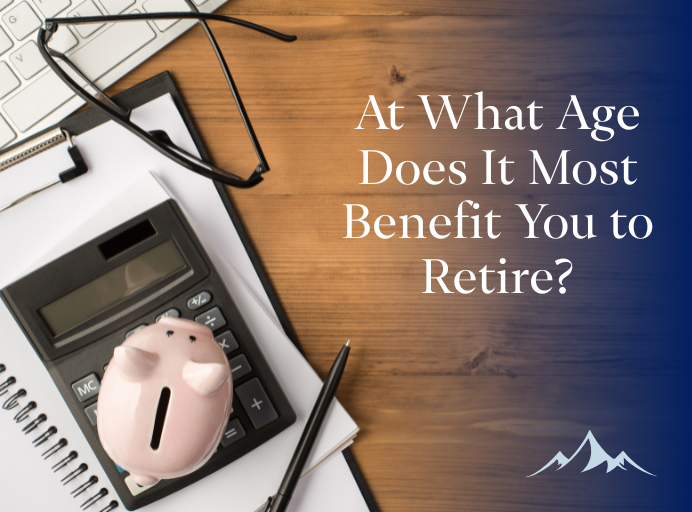
When thinking about retirement, we have found that it’s not uncommon for people to primarily focus on saving enough money to cover their living expenses. While managing your finances during retirement is crucial, one of several other important aspects of retirement planning that may get overlooked is estate planning. Integrating estate planning into your retirement preparation can play a significant role in shaping how your assets are managed and passed on, as well as how your affairs are handled if you become unable to manage them yourself.
What Is Estate Planning and Why Does It Matter?
Estate planning is the process of organizing and planning the distribution of your assets after you pass away, as well as making arrangements for healthcare and financial decisions if you become incapacitated. It involves a series of documents and strategies that help clarify your wishes and reduce complications for your loved ones.
Without clear plans, families may face delays, legal expenses, and disagreements that can make an already difficult time even more challenging.
How Estate Planning Connects with Retirement
Those who have planned for retirement, may have accumulated assets like retirement accounts, real estate, savings, and investments. The way these assets are handled after death or incapacitation can have a lasting impact on an individual’s heirs and beneficiaries.
Here are a few reasons why estate planning is important in retirement:
- Honors your wishes: Documents can specify how your assets should be distributed.
- Can help with healthcare decisions: Powers of attorney and healthcare directives allow someone to make decisions on your behalf if you are unable to.
- Can simplify the legal process: Proper planning may help reduce delays or court involvement.
- Can help with taxes and expenses: Thoughtful arrangements may influence how taxes and fees affect your estate.
- May offer peace of mind: Knowing that plans are in place may relieve stress for you and your family.
Key Components of Estate Planning for Retirement
Estate planning includes various tools and documents. Here’s a list of some commonly used components to consider during retirement planning:
- Will: Specifies how assets will be distributed and names guardians for minor children, if applicable.
- Durable Power of Attorney: Authorizes someone to handle financial matters on your behalf.
- Healthcare Proxy/Medical Directive: Designates a person to make healthcare decisions if you cannot.
- Beneficiary Designations: Ensures retirement accounts and insurance policies pass to the intended individuals.
- Advance Directive: Details your preferences for medical treatment and end-of-life care.
- Letter of Intent: Provides additional instructions or wishes not covered in legal documents.
- Guardianship Designations: Appoints guardians for dependents, if necessary.
Common Misconceptions About Estate Planning
We’ve heard people say that they avoid estate planning because they have misconceptions about what estate planning actually means so let’s look at potential misconceptions versus reality.
| Misconception | Reality |
| A will is enough | A will alone may not cover all situations, such as incapacity or beneficiary changes. |
| Estate planning is only for the elderly | Starting early provides more control and time to adjust plans. |
| It’s a one-time event | Life changes like marriage, divorce, or birth selling a house or property, require updating documents. |
When to Review and Update Estate Plans
Estate planning is not something you do once and forget. Life events and changes in laws can affect your plan, so regular reviews are important. Consider revisiting your estate plans in these situations:
- Marriage or divorce
- Birth or adoption of children or grandchildren
- Significant changes in assets or income
- Relocation to a new state
- Changes in healthcare wishes
- After the death of a spouse or beneficiary
Aligning Retirement and Estate Planning
A coordinated approach to retirement and estate planning allows you to consider your income, assets, and wishes in one comprehensive strategy. It can provide clarity on how your retirement savings will be handled both during your lifetime and afterward.
By thinking about these details now, you can reduce stress and confusion later, allowing your family to focus on what matters most.
While some retirement planning approaches may only center on accumulating assets and budgeting, including estate planning in the process addresses what happens beyond your lifetime and in times when you might not be able to make decisions. Taking the time to organize your wishes through clear documents and strategies can benefit both you and your loved ones.
While financial professionals don’t produce or participate in the preparation of estate planning documents, they can and should be included in understanding your estate plans, and also be involved in some financial strategies or selection of financial vehicles to align with your estate planning wishes.
Contact us today to learn how we can help you live retirement boldly and on your terms.
Vantage Point does not provide nor is this intended to provide legal advice. All individuals are encouraged to consult with qualified legal professionals regarding their personal situations.
Investment advisory services are offered through Vantage Point Financial, a registered investment adviser. Registration with any regulatory body does not imply any particular level of skill. This material is provided for informational purposes only and should not be construed as investment, tax, or legal advice. Working with a financial planner does not ensure financial success or prevent loss. All investments involve risk, including the possible loss of principal. Past performance does not guarantee future results. The scenarios presented are hypothetical and are intended for illustrative purposes only. They do not reflect actual client results and are not guarantees of future outcomes. Individual results will vary. Certain financial strategies may offer tax advantages, but outcomes depend on individual circumstances and are subject to change due to tax laws and other external factors. Vantage Point Financial does not provide legal or tax advice. Consult a tax professional. Retirement outcomes depend on a variety of factors, including individual savings behavior, market performance, health events, and other considerations. Certain statements herein may reflect the firm’s current views, expectations, or beliefs, which are subject to change without notice. For additional information about our services, fees, and disclosures, please refer to our Form ADV Part 2A, available at https://vantage-point.mwdevsite.com or upon request at no cost.









